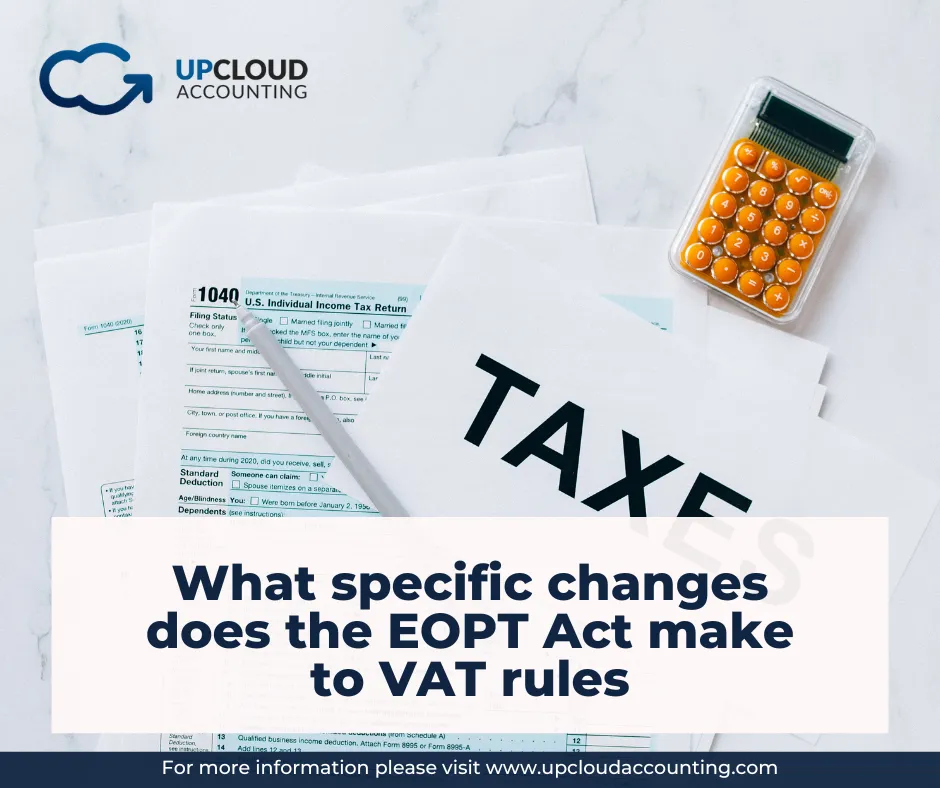What specific changes does the EOPT Act make to VAT rules

The Ease of Paying Taxes (EOPT) Act introduces several significant changes to Value-Added Tax (VAT) rules in the Philippines based on the RMC 65-2024 issued-on June 14, 2024, to clarifies certain issues relative to the implementation of Section 19 of Republic Act No. 11976 (EOPT Act).
Uniform Tax Base: The EOPT Act adopts a uniform tax base for both goods and services, making it easier for taxpayers to manage their VAT compliance.
The EOPT Act adopts the accrual basis of recognizing sales for both sales of goods and services, including transactions to government or any of its political subdivisions, instrumentalities or agencies, and government-owned or -controlled corporations (GOCCs).
All references to “gross selling price”, “gross value in money”, and “gross receipts” shall now be referred to as the “GROSS SALES”, regardless of whether the sale is for goods or services under Section 106 and Section 108 of the tax code, respectively.
VAT Invoice: The EOPT Act mandates a single document for both sales of goods and services, which is the invoice. This replaces the previous requirement for separate official receipts for goods and services.
CASH Sales - the seller who has passed on the VAT to the buyer has no problem with the corresponding VAT due thereon to the BIR.
The seller has already collected the agreed selling price, including the corresponding VAT.
CREDIT Sales - the seller, without having received the payment therefore, agreed to part the goods or properties or to render service secured only by a written agreement that the buyer thereof promises to pay the money owed including the VAT at a certain period (credit term).
The seller, being the person statutorily liable for the payment of the VAT, pays in advance the VAT passed on to the buyer to the BIR.
Output VAT Credit: Taxpayers can deduct the output VAT remitted on uncollected receivables from their output VAT in the next quarter after the lapse of the agreed period to pay, subject to specific conditions.
In some cases, the receivables are not collected. Under these circumstances, the seller would ordinarily recognize the uncollected receivable including the VAT as a bad debt and claim the same as a deduction from gross income following the provisions set forth under Revenue Regulations (RR) No. 5-99, as amended by RR No. 25-2002.
After the lapse of the agreed upon period to pay, the seller is not necessarily required to automatically credit the VAT paid every time there is an uncollected receivable due to the lapse of the agreed upon period especially so if the likelihood of collectability is high.
Invoicing Requirements: The need to specify the business style of the purchaser for sales amounting to P1,000 or more has been removed. Additionally, an invoice with incomplete information is no longer a bar to claim input VAT, if the lacking information is not one of the essential details.
VAT Refund Claims: VAT refund claims are classified as low-, medium-, and high-risk claims based on factors such as the amount of the refund claim, tax compliance history, and frequency of filing. Only medium- and high-risk claims are subject to audit or verification by the Bureau of Internal Revenue (BIR).
These changes aim to simplify VAT rules and documentation, making it easier for taxpayers to comply with their VAT obligations. In line with the changes, the BIR issued RMC No 68-2024 to announce the availability of the revised BIR Form No. 2550Q, the Quarterly Value-Added Tax (VAT) Return for April 2024. The said revised form is now accessible for download in PDF format from the BIR’s official website. However, it is not yet integrated with the Electronic Filing and Payment System (eFPS) or the Electronic BIR Forms (eBIR) platforms. Taxpayers are advised to continue using the existing version of the form available in these systems until further notice.
Additionally, if taxpayers needed to reporting amounts related to Output VAT on Uncollected Receivables, Output VAT on Recovered Uncollected Receivables Previously Deducted, Input VAT on Unpaid Payables, and Input VAT on Settled Unpaid Payables must file manually using the revised form. The announcement was made on June 19, 2024, and the revised form is intended for transactions occurring after the effectivity of Revenue Regulation No. 3-2024, which took effect on April 27, 2024.
Upcloud Accounting
Virtual Outsourced Accounting and Bookkeeping Services in the Philippines
Upcloud Accounting offers online accounting and bookkeeping services specializing with startups and SMEs in the Philippines.
Our goal is to increase efficiency, automation, and transparency across the accounting and finance functions of our clients with our cutting-edge technology.
If you want to move your company’s finance function online, contact our Team of Expert Accountants and Bookkeepers directly via [email protected] or visit www.upcloudaccounting.com to learn more about how Upcloud Accounting accounting services can support your PH business!
Disclaimer: This article or blog is only for general knowledge and guidance and is not a substitute for an expert opinion. For technical advice, please consult your tax / legal advisor for your specific business concerns. For comments, suggestions, and feedback, feel free to email us at [email protected]
Click the button below to schedule a FREE online consultation with us.
© 2023 by Upcloud Accounting. Created by Genuinely Business Solutions.
